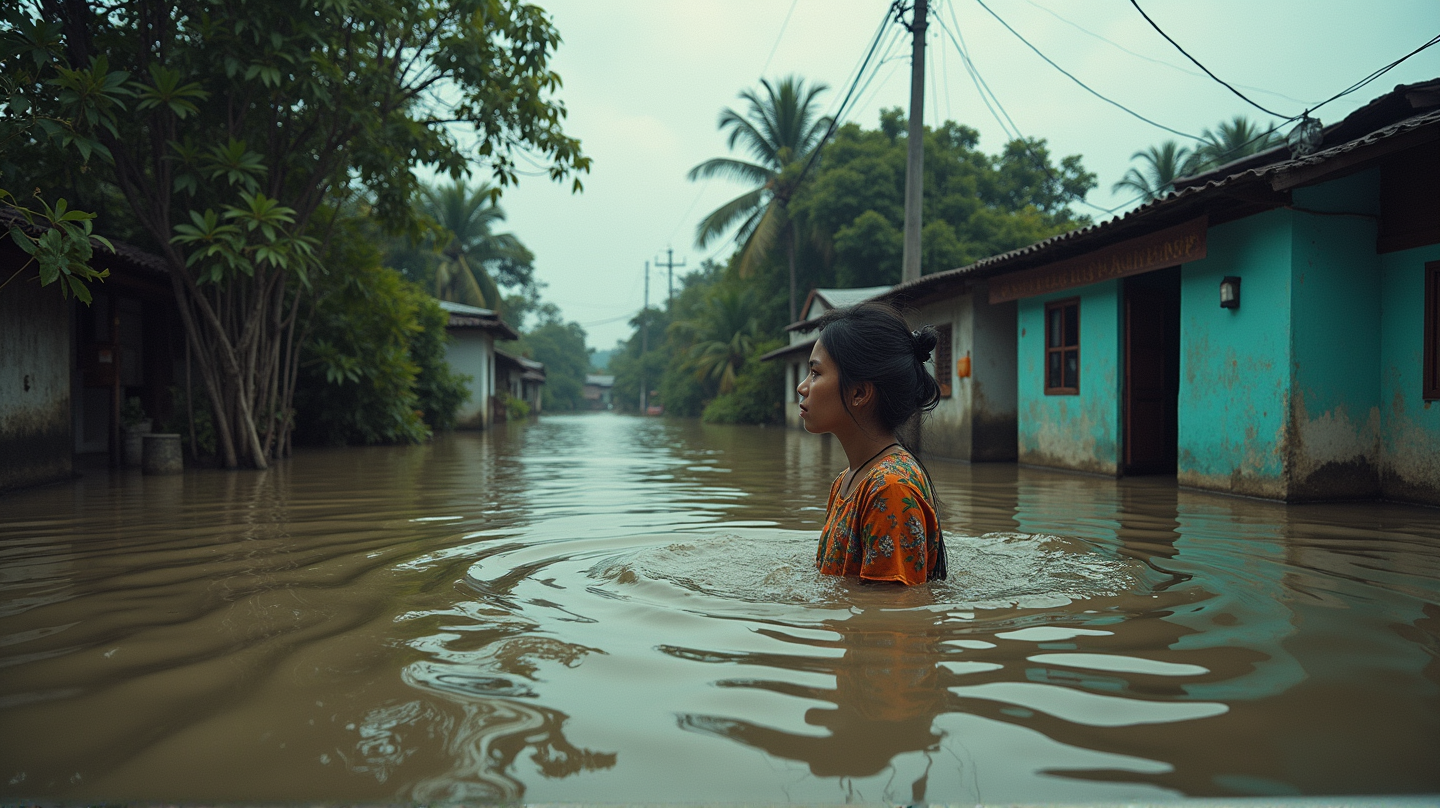As public scrutiny over flood control anomalies in the Philippines intensifies, social media has become the battlefield where ordinary Filipinos take on the opulent lifestyles of contractors’ and politicians’ offspring. With ongoing investigations revealing shocking truths about failed infrastructure, Filipinos have turned their attention to social media to expose these “nepo babies” who flaunt their wealth with impunity.
A Surge of Digital Vigilantes
Over the past week, platforms like Reddit have seen a surge in activity as users create accounts dedicated to unveiling the lavish lifestyles of these well-connected youth. One notable sub-Reddit, lifestylecheckPH, has swiftly garnered almost 7,000 followers eager to participate in “corrupt-shaming” efforts. Here, participants upload posts showcasing private jets, luxury spending sprees, and glossy displays of excessive affluence—each a piece in the puzzle of corruption that engulfs important public projects.
The Fuel: A $9.5 Billion Controversy
At the root of this digital storm is President Ferdinand Marcos Jnr’s revelation that a staggering 545 billion pesos (roughly US$9.5 billion) has been spent on yet largely ineffective flood management since 2022. While 9,855 projects were to be completed, serious questions are being raised about their efficacy and legality, as repeated failures have left Metro Manila and surrounding areas submerged in devastating floods.
Among the 2,409 registered contractors, only a small fraction—15 firms—cornered a whopping fifth of the total budget, raising red flags about potential unaccounted funds and “ghost projects,” which materialized only on paper. The president’s recent inspection of a supposed river wall riled him into ordering comprehensive lifestyle checks on government associates and DPWH officials.
‘Nepo Babies’ Under the Microscope
Spotlighted by their social media footprints, individuals like Claudine Co, whose family’s business ties trace back to these dubious projects, have vanished from public digital networks following intense backlash. Yet the anger persists, with users tirelessly documenting and sharing evidence of apparent corruption—a digital vigilante effort that organizers believe is essential in holding power to account. According to South China Morning Post, this renewed social media engagement mirrors past Filipino activism, such as the SMS-led Second People Power Revolution, reflecting the evolution of digital protest.
The Double-Edged Sword of Anonymity
While anonymity on platforms like Reddit offers participants a layer of security to expose sensitive issues without fear of retaliation, experts warn about the potential for disillusionment. They recognize that online protests must translate into real-world changes to avoid a backslide into apathy.
Athena Charanne Presto, a sociologist at the University of the Philippines Diliman, highlights the importance of leveraging these digital movements into tangible change. She explains that social media in the Philippines has evolved as a powerful tool for political engagement, where humor, creativity, and direct discourse combine to pressure accountability.
The Future of Digital Activism
As Filipinos continue to navigate social platforms to demand transparency, the country stands at a pivotal junction. If digital activism, through its myriad forms—be it posts, memes, or exposés—can lead to tangible reforms, it might transform how citizens engage with the political sphere. Yet, the risk of these efforts fading without resultant change necessitates further offline action.
In this complex dance of digital dissent and public accountability, the question remains: will the exposure of ‘nepo babies’ become a watershed moment for political reform in the Philippines, a bitter-sweet reminder of ongoing struggles, or a template for future battles? Only time will tell.
